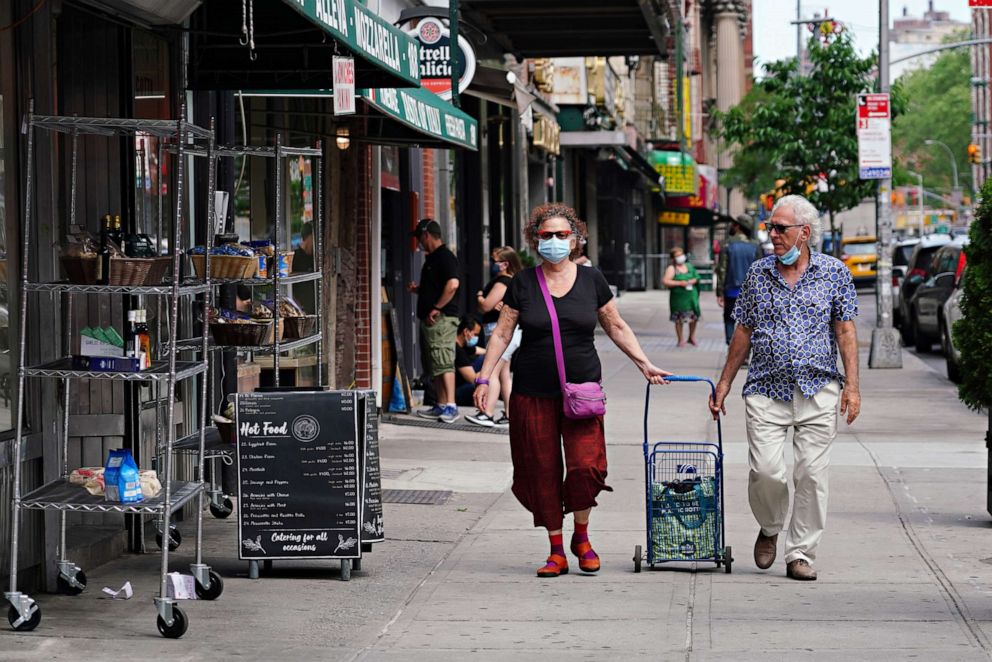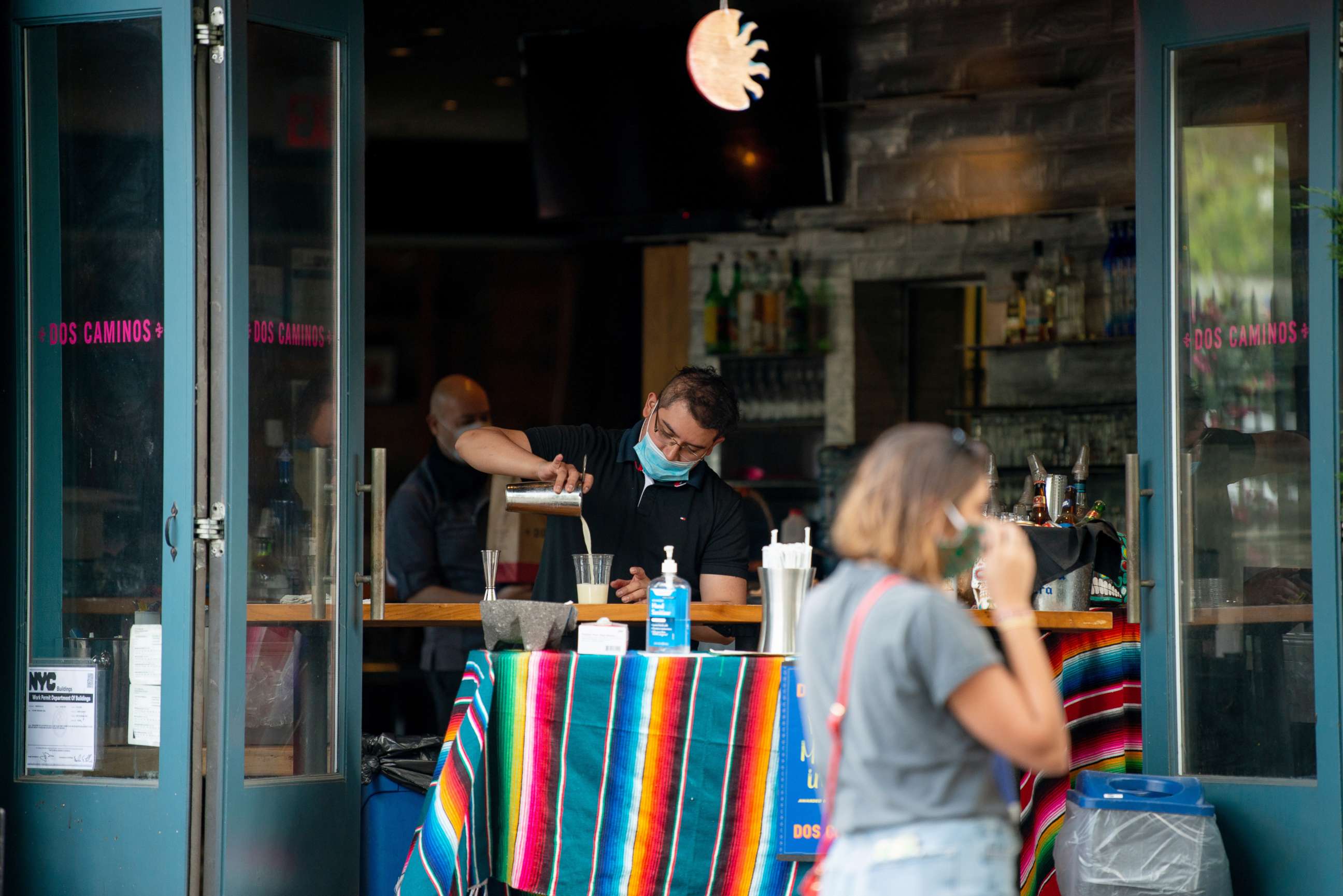Requiring face masks nationwide could save US economy from 5% hit, Goldman Sachs predicts
In addition to positive health outcomes, mask-wearing can help the economy.
A team of analysts at investment bank Goldman Sachs argued that mandatory face masks nationwide could not only improve health outcomes amid the novel coronavirus pandemic, but could also save the U.S. gross domestic product from a potential 5% hit.
A nationwide face coverings mandate coupled with stringent bans on large gatherings "could partially substitute for renewed lockdowns," Goldman Sachs analysts Jan Hatzius, Daan Struyven and Isabella Rosenberg wrote in their report, noting this could salvage large amounts of economic activity that would otherwise be shut down due to pandemic precautions.
The researchers estimated that a national mandate on masks would increase the percentage of people who wear them by 15 percentage points, and especially help places such as Florida and Texas that don't have a comprehensive mandate and are experiencing new jumps in COVID-19 cases.
Moreover, based on their analysis of health outcomes, a national mask mandate would cut the daily growth rate of confirmed cases by 1 percentage point.

Finally, the researchers translated their findings into financial terms by looking at their research on how lockdown measures impact GDP.
"These calculations imply that a face mask mandate could potentially substitute for lockdowns that would otherwise subtract nearly 5% from GDP," the economists wrote.
The analysts also looked at data from the economies of Japan, China and South Korea, where face mask use, especially during a health crisis, is part of the national norm. Ninety percent of respondents said they wore a mask in East Asia, where case totals have plummeted in recent months.
As shown in Exhibit 3, face mask usage in the U.S. is highest in the Northeast, where the virus situation has improved dramatically in recently, and generally lower in the South, where the numbers have deteriorated.

Guidance on facial coverings from medical authorities evolved greatly as the pandemic raged on, leading to confusion in some places. As late as March 30, the World Health Organization's epidemics chief said "there is no specific evidence to suggest that the wearing of masks by the mass population has any particular benefit."

The WHO and the U.S. Centers for Disease Control and Prevention have since reversed course, saying that wearing face coverings play an important role in preventing the spread of COVID-19 in communities.
In the U.S., however, the medical guidance has become embroiled in a culture war. Even President Donald Trump insisted this week that mask-wearing is everyone's "personal choice" despite the health crisis and concerning rises in COVID-19 cases throughout parts of the country.




